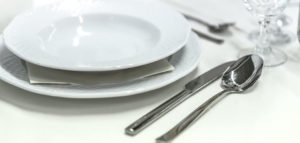Dishwashers have become a staple in most households, as it makes cleaning dishes a breeze. However, sometimes during power outages, people often wonder if their dishwashers can run on an inverter.
And with the popularity of inverters on the rise even globally, it’s not surprising that many people are curious about whether their dishwashers can run on one.
In this article, we will discuss in details whether a dishwasher can be powered by an inverter and what factors you need to consider before doing so.
Table of Contents
Can dishwasher run on inverter?
Yes, a dishwasher can run on an inverter, but it depends on several factors. The first factor to consider is the power requirement of the dishwasher.
Most dishwashers will need a considerable amount of power to operate and can consume anywhere from 1200 to 2400 watts, and on average will use 1,800 watts.
With this in mind you have to make sure that your inverter is capable of delivering enough power so as to run the dishwasher effectively.
The next thing you need to be aware of is the type of inverter that you have. There are two main types of inverters: modified sine wave and pure sine wave.
Pure sine wave inverters are recommended for running common home appliances such as dishwashers as they are able to generate a more cleaner and stable power output.
On the other hand, modified sine wave inverters are not recommended for basic home appliances like TVs, computers, and stereos.
This is mostly because they don’t produce stable power output which cannot only affect sensitive appliances but they will also use more power to run them.
Although they can be less expensive to buy but it is not the ideal type of inverter you want to use to power your dishwasher.
In summary you will need to consider the size of the inverter that you have. Dishwashers require a lot of power, so you’ll need a larger size inverter if you want to run your dishwasher on it.
Also, it is important to make sure that the inverter has a large numbers of batteries and capacity to run the dishwasher for a sufficient amount of time.
In conclusion, before using an inverter to power your dishwasher, it’s important to carefully consider these factors so as to ensure you have the right setup that is safe and reliable.
Which is cheaper to run your dishwasher inverter or power grid?
To properly determine which will be cheaper to run your dishwasher on between the inverter and the power grid will depend on various factors.
Such as the energy efficiency of the dishwasher, the cost of electricity in your area, and how often you use your dishwasher.
Typically, using an inverter dishwasher is more energy-efficient than a conventional one and can help you save money on your electricity bill.
Inverter dishwashers have variable speed motors that adjust the water pressure and temperature according to the amount of dirt it detects on dishes, resulting in less energy usage and water waste.
This results in a more efficient and eco-friendly cleaning process compared to conventional dishwashers that use a fixed-speed motor.
Generally, most modern dishwashers are energy efficient as they normally require less energy and are able to conserve water usage for you.
But if you are using an inverter to power your dishwasher appliance it becomes cheaper in the long run as the only investment or payment you are making for now is the cost of the inverter machine itself.
You don’t need to pay any monthly fee for electricity anymore as you are generating your own power.
Overall, even though using an inverter to power your dishwasher can be considered to be cheaper in the long run we still think that dishwashers that run on the power grid can be managed to become cheaper as well for you as it depends how energy efficient the dishwasher is and your typical usage patterns.
Can using an inverter to power dishwasher damage it?
No, using an inverter to power a dishwasher is completely safe and should not cause any damage to the appliance.
Inverters are designed to convert direct current (DC) electricity from a battery into alternating current (AC) electricity, which is what most household appliances, including dishwashers, require to operate.
There are houses that are powered on solar panels and inverters alone which are considered as one of the safest and environmentally friendly energy solution.
Inverters can also be used to provide backup power to appliances during power. When used properly, inverters are safe and reliable and should not cause damage to your dishwasher.
The most important aspect of using an inverter is to make sure you get the correct voltage and amperage rating for your dishwasher.
Because using the wrong type of inverter like the (modified sine wave) inverter with the wrong specifications can cause damage to the appliance.
Before using an inverter, you should consult the owner’s manual for your dishwasher to determine the correct specifications, and use a reputable, high-quality inverter that is designed for your specific needs.
Learn more about dishwashers electrical requirements by reading this article on “are dishwashers 110 or 220 volts”
Final thoughts:
Using an inverter to power a dishwasher can provide a convenient source of AC power when no electrical outlet is available, and it can also serve as a backup power source during power outages.
However before using an inverter, you should first check the owner’s manual for your dishwasher so as to know and determine the correct electrical needs or specifications of your dishwasher so that you can use a reputable, high-quality inverter that is able to conveniently power your dishwasher.
In general, dishwashers can run efficiently on inverters if they are used properly and maintained according to the manufacturer’s instructions.
Sources:
https://www.solar-electric.com/learning-center/inverter-basics-selection.html/
https://climatebiz.com/inverter-size-chart/





